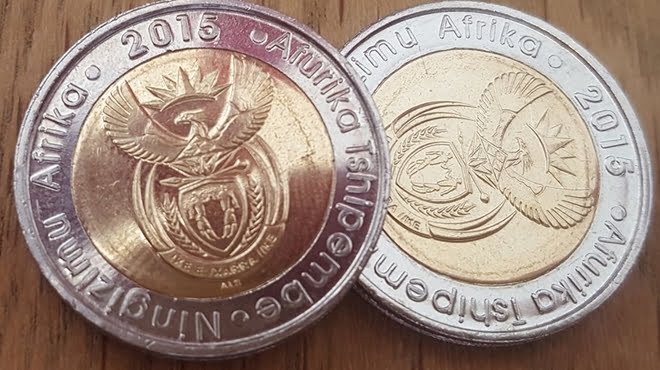South African policy makers may be about to consider whether to follow counterparts from Russia to Turkey and raise interest rates – even when the country is battling a recession.
Investors and economists are divided on the chances that officials will respond to emerging-market turmoil with the country’s first upward move in borrowing costs since 2016. While forward-rate agreements suggest there’s a chance of an increase on Thursday, just three of 19 economists in a Bloomberg survey expect that.
The South African Reserve Bank is contending with a currency that’s lost 17% to the dollar this year, inflation near the upper end of its target band, expectations for quicker price growth, and pressure to increase the rate to keep up with the momentum of other jurisdictions.
The economy entered its first recession since 2009 in the second quarter.
“We have to make peace with a weaker rand and that may force them to hike,” said Abri du Plessis, an economist at Gryphon Asset Management Ltd who forecasts a 25 basis-point increase to 6.75%. “I would not, even at this upcoming meeting, put it off the table.”
Raising the rate may knock chances of an economic recovery. Loosening policy could lessen the appeal of South African assets for investors searching for yield.
Russia, Turkey
Last week, Russia’s central bank raised its key rate for the first time in four years to 7.5%, while Turkish officials increased the rate by 625 basis points to 24%.
There’s a week to go before the US Federal Reserve delivers what could be its third interest-rate increase of the year, which may quicken the sell-off of emerging-market assets and further knock the rand.
Price Expectations
South African inflation expectations — as measured by the five-year breakeven rate — are now at the highest in almost three months. While price growth remains inside the central bank’s target range of 3 percent to 6 percent, the rate is at a 10-month high.
Policy makers will wait for broader price increases in the economy before tightening, Governor Lesetja Kganyago said in an Aug. 23 interview.
While the central bank may look at South Africa’s benchmark rate relative to emerging-market peers, the recession will see the bank hold the rate, said Elna Moolman, an economist at Standard Bank Ltd.
“The SARB can still delay any interest-rate hikes,” she said. It will only raise “if it is concerned that a lack of action following the sharp depreciation of the rand will negatively affect its inflation-targeting credibility.”















